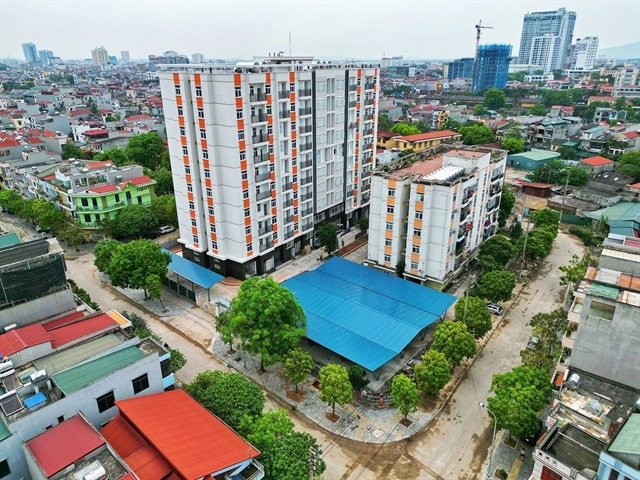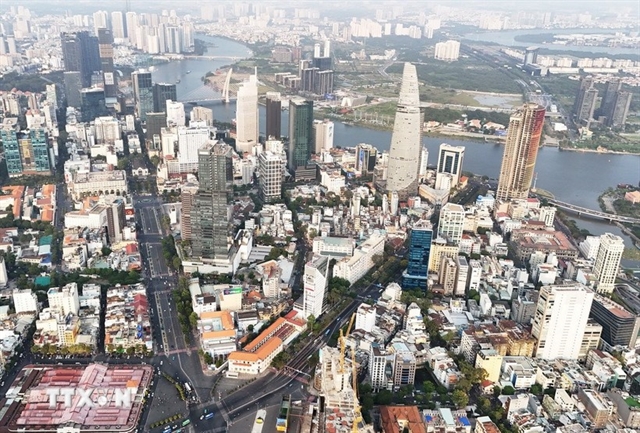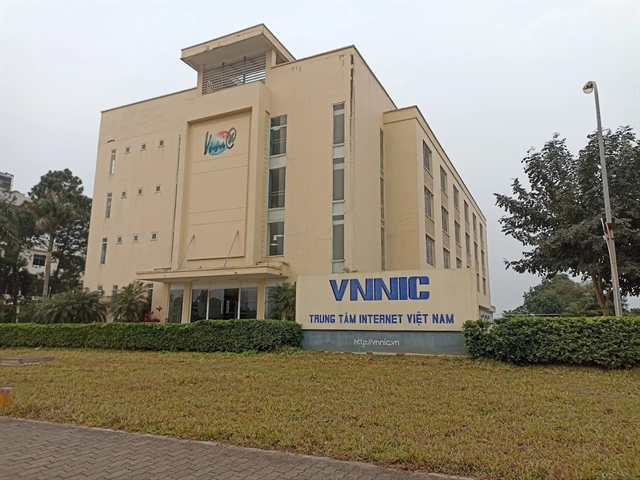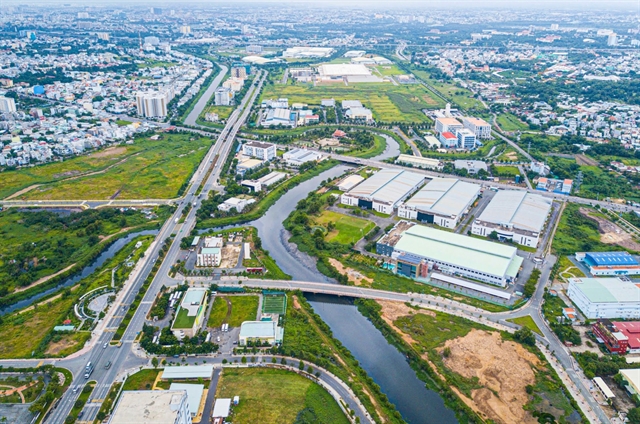 Society
Society

 |
| A social housing project in Bắc Giang City, the northern province of Bắc Giang. — VNA/VNS Photo Tuấn Anh |
HÀ NỘI — A suggestion to enable a broader section of the population to purchase social housing has garnered widespread interest.
In the Bắc Giang Province, a social housing initiative intended for the workforce of the Nếnh Town's newly developed urban zone was designed to accommodate 12,000 individuals. Approximately 8,700 of these are employed in industrial areas, while the remaining 3,300 are relatives of the workers.
However, Nguyễn Ngọc Sơn, deputy head of the Bắc Giang Construction Department, revealed that there were scant registrations for the social housing within the scheme.
This is attributed to the criteria being too stringent compared to the actual demand.
Furthermore, there has been a shift in the workforce numbers and their respective needs for social housing.
To address these challenges, the province is revising the objectives across various stages of the project, tackling its constraints, and broadening the range of eligible recipients. This will allow not only workers but also those with lower incomes to purchase social housing.
This issue encountered by Bắc Giang Province mirrors the situation in numerous other regions.
The Ministry of Construction (MoC) recently received a petition from the electorate of the southern province of Đồng Nai.
The petitioners advocated for expanding the eligibility criteria for purchasing social housing to cater to low-income individuals and called for supportive policies to boost the development of social housing in the foreseeable future.
The MoC confirmed that Article 49 of the Housing Law identifies ten categories of individuals who qualify for social housing. This includes those who have rendered notable services to the country, impoverished and nearly impoverished families, households residing in regions frequently impacted by natural calamities and climatic changes, low-income individuals, and staff members employed at enterprises both within and outside industrial zones.
During the initial six months of this year, nationwide, nine projects were initiated, accounting for 18,768 social houses designated for industrial park employees in Hải Phòng, Hà Nội, Lâm Đồng, Bình Định, and Bắc Giang.
Additionally, a scheme to construct one million social houses for low-income individuals and workers from 2021 to 2030 received approval from the Prime Minister in April this year.
The goal is to finish as many as 1,062,200 flats by 2030.
Consequently, the outcomes so far have not met expectations.
The MoC identified the primary causes as the insufficiency of land for constructing social housing, issues in the procedures for selecting investors, a deficit in preferential capital, and inadequate incentive policies to draw businesses.
Additionally, certain organisations and individuals fail to adhere to the rules concerning social housing due to the leniency of penalties.
The proposed revision of the Housing Law was presented to the 15th National Assembly for feedback during its fifth session and is anticipated to receive approval in its sixth session.
Articles 73 and 74 of the proposed amendment facilitate the purchase of social housing by a broader segment of the population.
According to construction expert Đào Ngọc Nghiêm, deputy chairman of the Việt Nam Urban Planning and Development Association, it is imperative for industrial zones to adopt a rental approach and permit businesses to make hiring decisions.
Nghiêm asserted that augmenting incentives and the quantity of social houses would address the mismatch between supply and demand in the property market, as well as advance the initiative to construct a minimum of one million social housing flats.
He noted that the Government is establishing a system founded on the 2017 Planning Law and modifying provincial construction plans.
Moreover, once the revised Land Law is ratified and comes into force, it will expedite the harmonised implementation of planning and land usage schemes at various tiers.
These plans incorporate stipulations on residential land, presenting both an obstacle and an opportunity to reassess and modify the land allocation for social housing construction, encompassing industrial zones.
Therefore, Nghiêm emphasised that planning is the initial, crucial step towards fulfilling the objective of a minimum of one million social houses nationwide by 2030. — VNS




